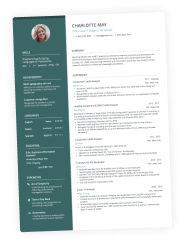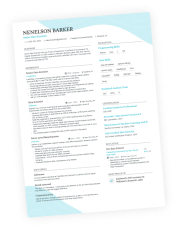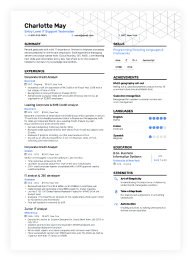Are you wondering whether to include your age on your CV? In most cases, we’d say, no, you shouldn’t.
It’s not a piece of information employers should typically ask for before hiring you. Also, in most cases, it has little to no bearing on whether someone’s fit for a job.
But, maybe you still have doubts… will the recruiter think I’m young enough to be up to date and have the energy, or have the maturity and experience to see the job through and get it done right?
So, in this article, we:
- Explore the legal and ethical landscape around including your age on your CV
- Look at the pros and cons of including your age on your CV
- Discuss alternative ways to demonstrate your suitability for a role
- Offer simple tips for how younger and older applicants can lean into their age to boost their CV’s impact!
Ethical & legal considerations
Your CV should include all the information a potential employer needs to gauge whether you’re the right fit for their team. However, while some personal information is essential on a CV, age is unnecessary and actually best left off.
Let’s look at some of the related legal issues and anti-discrimination laws intended to protect people’s rights and avoid unfair hiring practices to better understand why.
Age discrimination
Discrimination can be based on many factors, including age. Discrimination, stereotyping, and unfair treatment based on age-related assumptions is called ageism.
Not including your age on your CV goes a long way toward mitigating the risk of age-based discrimination in the hiring process.
Anti-discrimination laws
The Equality Act 2010 is the UK’s primary legislation dealing with workplace discrimination. It protects people from discrimination along nine characteristics, including age.
Under the Equality Act, employers are legally bound not to discriminate against individuals based on age, whether young or old. So, questions about age are best avoided until after the hiring stage.
Direct discrimination
Direct discrimination describes when someone is treated differently based on certain inherent characteristics, like race, ancestry, colour, and place of origin, but also age.
Including age on your CV increases the likelihood an employer could base their hiring decision, whether for or against you, on your age rather than qualifications and experience. That would be an instance of a direct discriminatory hiring practice.
Indirect discrimination
Alternatively, indirect discrimination happens when certain groups or people are put at a disadvantage by an employer's hiring practices, intentionally or otherwise.
For example, if a company posts a job specifying they’d prefer a specific age range, Like 25-35-year-olds, they’d also be indirectly discriminating against candidates outside that range.
What this means in practice
The simplest way to avoid the potential ethical and legal pitfalls around age discrimination is to not include your age. Instead, focus your CV on your relevant qualifications, skills, and experience.
Following anti-discrimination laws and concentrating on your merit-based criteria also promotes equality and diversity in the workplace. That’s a win-win.
Nonetheless, in case you do choose to include your age, on your CV, let’s explore the potential impact.
Pros
- Demonstrates experience - If you’re a seasoned professional and want to ensure that it’s recognised, including your age can highlight the years of experience you’ve gained in your field.
- Provides context - Your age can help add another layer of context to the achievements and career milestones you describe in your CV. This can help recruiters better understand your career path.
- Transparency - Including your age upfront could build trust with your employers if they see it as demonstrating transparency and honesty in your job application.
- Industry expectations - The reality is that despite anti-discrimination laws, age sometimes is considered relevant in certain industries or roles. For example, senior management roles might preferentially be granted to more mature candidates in conservative companies or traditional industries.
Cons
- Risk of discrimination - The laws were enacted for a reason: age discrimination is a genuine concern, especially for candidates at either the older or younger ends of the spectrum.
- Irrelevance - Your age is largely irrelevant to your qualifications and whether you’re a good fit for a role. Focusing on showing off your skills, experience, and achievements is usually more valuable than including your age.
- Legal considerations - As we mentioned, including your age increases the likelihood of contravening anti-discrimination laws. Not including your age ensures you’re compliant with legislation on the matter.
- Privacy concerns - Adding extra information to your CV, like age, increases privacy risks, such as identity theft if the document falls into the wrong hands or is just circulated widely.
What can you do?
Not including your age on your CV is as easy as not including your age. But we do have some advice on how to improve the impact of your CV at the same time.
Alternative CV format
Suppose you find yourself in an unusual situation where you think your age may be viewed as a weakness in your application. In that case, one option is to clarify how your skills are a great fit. A skills-based CV format is great for just that goal.
A skills-based CV shifts the focus from a reverse chronological work history toward highlighting your core competencies and achievements. It’s a strategic way to demonstrate to recruiters that you have specific relevant skills and experiences that align with the job, regardless of age.
A skills-based CV is a great way to tailor your CV to the specific job requirements an employer is looking for. You can go carefully through the job description and identify specific and transferable skills and experiences you have that meet their expectations.
If you’re younger
There are also a few options if you think specifically that you may be seen as too young for a role:
- Emphasize your enthusiasm - Highlighting your energy, enthusiasm, and willingness to learn and grow with a company can help build a potential employer's interest in you.
- Demonstrate your potential - If you’re feeling especially confident, you can also showcase your ambition and demonstrate your potential by suggesting fresh perspectives or innovative ideas about the role.
- Lean into your relevant skills and experiences - You can craft a strong work experience section even if you have limited real-world time to draw on. Instead, focus on relevant internships, coursework, projects, and extracurricular activities to demonstrate your skills and readiness for the job. Even with limited professional experience, you can showcase your potential impact, especially by quantifying your achievements where you can.
- Demonstrate tech-savviness - Younger people often are - or are considered - more tech-savvy and up-to-date on relevant tech than their more mature counterparts. Highlight your proficiency with digital tools and how you could leverage them to drive results with new technologies in your field.
- Seek mentorship and build your network - Proactively engage in mentorship opportunities, seek guidance, and try to develop your network by reaching out to experienced professionals in your field. Their insights and advice can help you find hidden job opportunities, navigate the job search process, and overcome hurdles along your career path.
If you’re older
If you’re an older applicant, sometimes it can feel like a young person’s world. Here are some ideas to strengthen your CV if you’re worried your age could hurt your chances.
- Highlight experience and expertise - There’s no replacing your extensive experience, expertise, and accomplishments in your field. Emphasize how the years you’ve put in uniquely qualify you for the role and how you’re a valuable and irreplaceable asset to a company.
- Showcase adaptability and continuous learning - Don’t let your professional development and training courses, certifications, and relevant achievements go unnoticed. Highlight them in your CV to demonstrate how flexible you are and that you’re just as up-to-date as any younger applicants, but with a deep reserve of experience too!
- Frame age as an asset - Instead of letting anyone see your age as a hindrance, frame the wisdom, maturity, and wealth of experience you bring to the table as an asset. Emphasize how your experience comes with intangible benefits, like mentorship opportunities, leadership insights, and familiarity with best practices.
- Be proactive - Anticipate and address potential age-related concerns, like capacity for change or how you’ll fit in with younger team members, by showcasing times you navigated similar situations in the past.
- Network with purpose - Years of experience in a field often means you’ve developed an extensive professional network. Leverage it to uncover hidden job opportunities, gain insights about corporate cultures that suit you, and connect with potential employers who value experience and diversity.
Takeaways
- Typically, it’s best to not include your age on your CV
- There are legal considerations and discrimination laws that prohibit selective hiring based on age in the UK
- Focus your CV on highlighting the skills and achievements you bring to the table
- Networking is an excellent way for younger and older applicants to learn about corporate culture and find a job with precisely the right fit!



